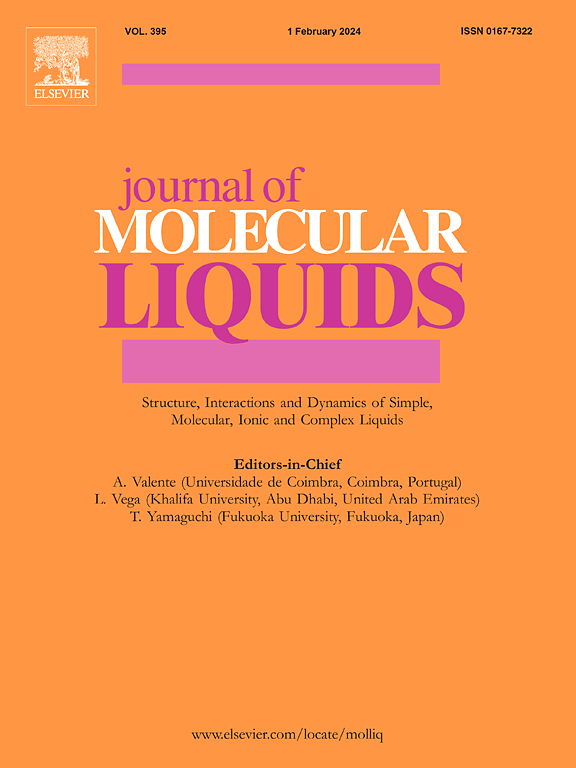The synthesis and application of functional materials strengthened by ionic liquids
IF 5.3
2区 化学
Q2 CHEMISTRY, PHYSICAL
引用次数: 0
Abstract
As green solvents, ionic liquid could significantly improve the activity and selectivity of substances in a reaction system. At the same time, ionic liquids show excellent dissolving capacity for a variety of organic and inorganic reactants. More importantly, ionic liquids have unique designability and tailorability, which endow ionic liquids with great potential applications in many fields. In this paper, based on the roles of ionic liquids played in strengthening synthesis and application of functional materials, including nanomaterials, metal organic complexes, molecular sieve, as well as polyoxometalates, the intra- and intermolecular interactions between ionic liquids, solvents, and reactants and are discussed in four parts, and the applications of functional materials in catalysis, sensing, optoelectronics and adsorption are introduced. It can be seen that the structure-dependent physicochemical properties of ionic liquids are of great importance for producing functional materials with good performances.
离子液体增强功能材料的合成与应用
离子液体作为绿色溶剂,可以显著提高反应体系中物质的活性和选择性。同时,离子液体对多种有机和无机反应物表现出优异的溶解能力。更重要的是,离子液体具有独特的可设计性和可定制性,这使得离子液体在许多领域具有巨大的应用潜力。本文从离子液体在纳米材料、金属有机配合物、分子筛以及多金属氧酸盐等功能材料的合成和应用中所起的作用出发,分四部分讨论了离子液体、溶剂和反应物之间的分子内和分子间相互作用,并介绍了功能材料在催化、传感、光电子和吸附等方面的应用。由此可见,离子液体与结构相关的物理化学性质对制备性能良好的功能材料具有重要意义。
本文章由计算机程序翻译,如有差异,请以英文原文为准。
求助全文
约1分钟内获得全文
求助全文
来源期刊

Journal of Molecular Liquids
化学-物理:原子、分子和化学物理
CiteScore
10.30
自引率
16.70%
发文量
2597
审稿时长
78 days
期刊介绍:
The journal includes papers in the following areas:
– Simple organic liquids and mixtures
– Ionic liquids
– Surfactant solutions (including micelles and vesicles) and liquid interfaces
– Colloidal solutions and nanoparticles
– Thermotropic and lyotropic liquid crystals
– Ferrofluids
– Water, aqueous solutions and other hydrogen-bonded liquids
– Lubricants, polymer solutions and melts
– Molten metals and salts
– Phase transitions and critical phenomena in liquids and confined fluids
– Self assembly in complex liquids.– Biomolecules in solution
The emphasis is on the molecular (or microscopic) understanding of particular liquids or liquid systems, especially concerning structure, dynamics and intermolecular forces. The experimental techniques used may include:
– Conventional spectroscopy (mid-IR and far-IR, Raman, NMR, etc.)
– Non-linear optics and time resolved spectroscopy (psec, fsec, asec, ISRS, etc.)
– Light scattering (Rayleigh, Brillouin, PCS, etc.)
– Dielectric relaxation
– X-ray and neutron scattering and diffraction.
Experimental studies, computer simulations (MD or MC) and analytical theory will be considered for publication; papers just reporting experimental results that do not contribute to the understanding of the fundamentals of molecular and ionic liquids will not be accepted. Only papers of a non-routine nature and advancing the field will be considered for publication.
 求助内容:
求助内容: 应助结果提醒方式:
应助结果提醒方式:


